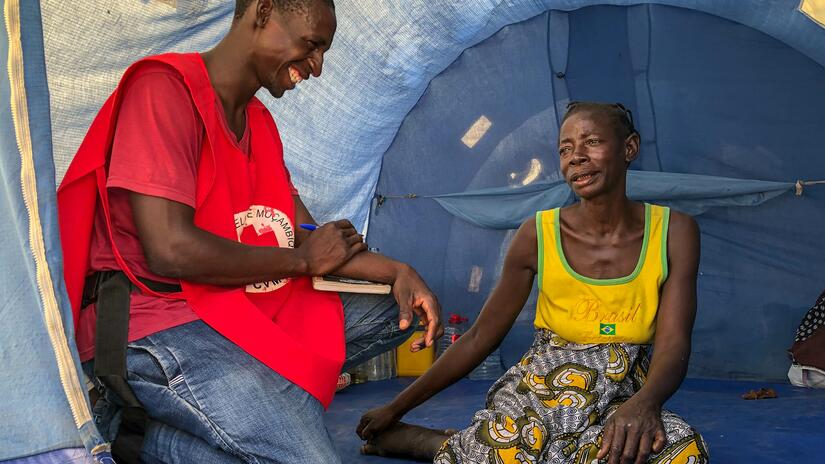The massive mental health needs of people affected by humanitarian emergencies are not being addressed, warned leaders of the International Committee of the Red Cross (ICRC) and the International Federation of Red Cross and Red Crescent Societies (IFRC).
People living in conflict-affected areas are three times more likely than the general population to suffer from conditions such as depression and anxiety, to post-traumatic stress disorder. From experience Red Cross says this can be similarly true for other humanitarian crises like disasters, and health emergencies.
“These mental health issues, if left untreated, create hidden wounds which have far reaching and long term negative impacts for people and communities dealing with humanitarian emergencies,” said Elhadj As Sy, IFRC’s Secretary General, speaking ahead of a conference on mental health and psychosocial support in crisis situations in Amsterdam, the Netherlands.
“Supporting people’s mental health and psychosocial support can be lifesaving in times of disasters, war and violence, just as much as stemming the bleeding from a deep wound or having clean water. Hidden wounds are no less dangerous to a person’s well-being and ability to thrive during crisis,” said ICRC’s Director General Yves Daccord.
But in low- and middle-income countries where most humanitarian crises occur, mental health and psychosocial support services are underprioritized and underfunded with an average of two mental health workers per 100,000 people. As a result, two thirds of people with severe mental health conditions in these countries go without any treatment.
This lack of treatment also increases stigma, exclusion and discrimination. The consequences of which can severely impact a person’s safety, dignity, and health and further undermine the ability of communities and states to appropriately address mental health and psychosocial challenges.
“Investing in mental health and psychosocial support saves lives and must be integrated into all humanitarian responses.” said IFRC’s Elhadj As Sy. “We know that early interventions can prevent distress from developing into more severe mental health conditions which can have much more serious and long-term consequences.”
Mental health and psychosocial support in post-conflict environments is highly effective: every $1 invested in treatment for depression can lead to a $5 return in better health. Community-based volunteers and trained professional workforces are critical to bridging this resource gap.
The ICRC and IFRC are calling for increased recognition of the mental health consequences of humanitarian crises and greater investment in the critical role of local actors to fill existing gaps in providing mental health and psychosocial services during humanitarian crises.
“We see more and more invisible suffering today. Mental health and psychosocial support must therefore be a priority in humanitarian emergencies and taken as seriously as physical health,” said ICRC’s Yves Daccord.


